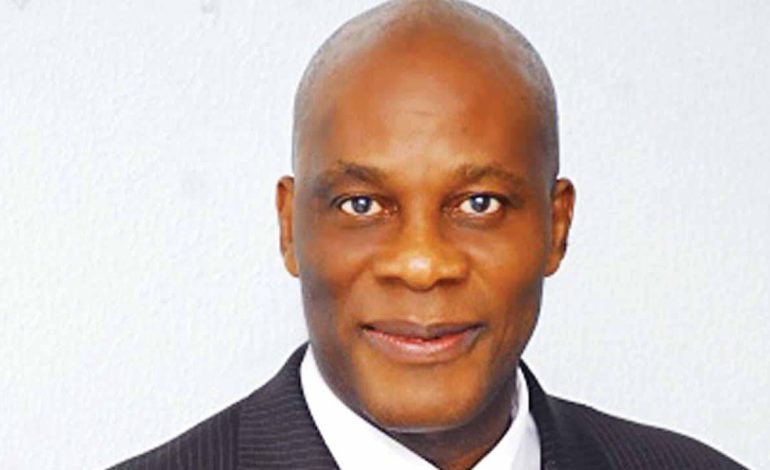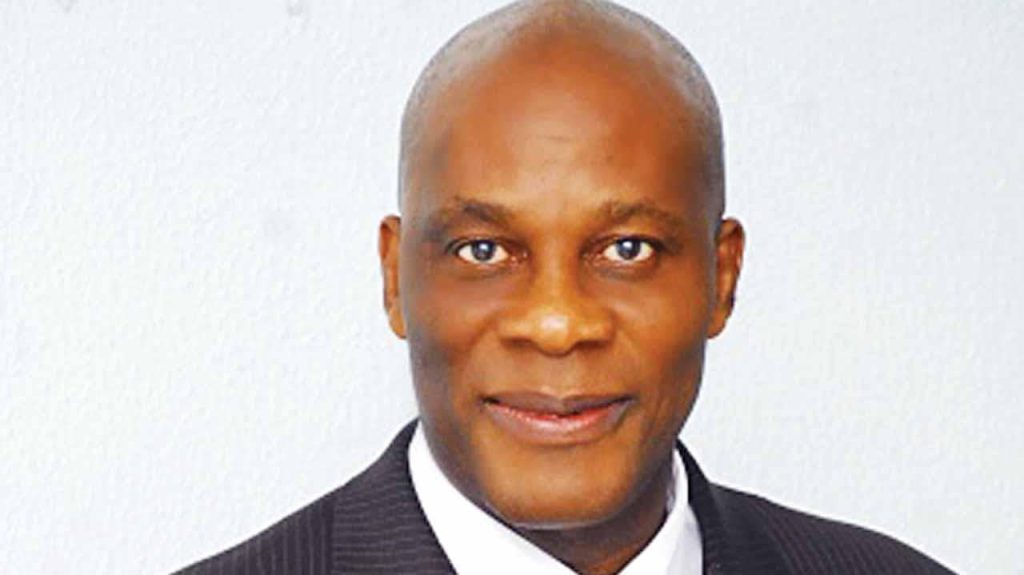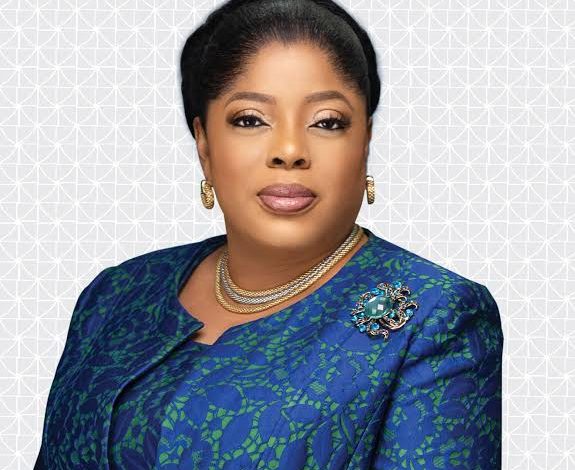Reminiscences of Emeritus Professor Emevwo Anselm Biakolo (1957 – 2024)

By James Tsaaior
ON the night of 8 February, 2024, we lost Emeritus Professor Emevwo Anselm Biakolo. He passed on peacefully in his sleep in his home in Lagos, Nigeria. He was 67. Earlier that day he was at work in his office at the Pan-Atlantic University, Lagos where he was the Founding Dean of the University’s School of Media and Communication. He taught at the SMC for many years and raised generations of students who now survive him as leaders, teachers and managers and are impacting the world in different spheres of life.
Prof. Biakolo was educated at the University of Ibadan, Nigeria where he studied English and the Classics earning a doctorate in folklore. The egret does not wander too far away from the cow where it dutifully harvests flies just like the bee is attracted to the ambrosial fragrance of nectar and this was true of Prof. Biakolo in his chosen academic vocation. He never left the ivory tower and later became an influential member of faculty in the Department of English in Ibadan where he taught poetry, oral literature and folklore studies. He earned a solid reputation in the university as an avid reader, conscientious writer, dedicated teacher, cerebral academic, consummate scholar, thoroughbred researcher, restless seeker of knowledge and tireless trafficker in ideas effectively following his elder sibling, Dr. Anthony Biakolo (later Professor) who lectured in the Department of Modern European Languages.
At the Pan-Atlantic University where he was dean, he proved himself to be a visionary administrator, astute manager of human capital, prudent controller of financial resources, and a rare gem of a scholar in communication media. His 2010 inaugural lecture titled “Communication, Communion, Community” was richly layered and ground-breaking and confirmed Biakolo as a priest whose horn was filled with the anointing oil of knowledge and ideas.
Fondly known as Oga Biaks by his colleagues, friends and admirers, Prof. Biakolo possessed a personality contagion which attracted many people to him. He was a personable, humane, selfless, forthright, incisive and humorous man. He was affirmatively “an intense man” (to appropriate his late spouse, Margaret’s felicitous phraseology), but beneath that veneer was an affable, friendly, accommodating, generous and compassionate soul who had no capacity to hate or keep malice. In matters of faith, he was a devout Catholic who gave expression to his Christian life with propriety, heroic virtue and exemplary conduct. Like St Anselm, his patron saint, he was a man of outstanding philosophical depth, constant prayer and deep contemplation.
As a writer, Prof. Biakolo was an accomplished poet with great intensity of thought, compelling style, profound imagery and lyrical grace. His volumes of poetry, Ravages and Solaces (1994) and Strides of the Night (1995) amply validate this critical acclaim. And as an essayist and columnist, his prodigious output resonated with powerful accents and cadences, vatic insights and prophetic vision. He was a leading member (with Harry Garuba) of the Ibadan poetry collective which regularly met nocturnally in Room 71 for engaging poetic sessions. It was in that cultic room that sacrifices of poetic initiations were held and ritual libations were poured with disarming piety to the poetic muse. Young poets among them Onookome Okome, Nduka Otiono, Chiedu Ezeana, Remi Raji, late Pius Adesanmi, Afam Akeh, Amatotsero Ede, etc. were forged here and offered to the university and the world through this initiative.

Prof. Emevwo Biakolo
Prof. Biakolo had an exceptionally fertile imagination and was given to protean artistic interests. He ventured into media practice and soon established himself as a much sought after and much read columnist with The Guardian Newspapers. It was while writing for The Guardian that Biakolo’s activist credentials and character as a social gadfly and public intellectual became firmly etched on the public imagination. It is only iron that sharpens iron and only the deep can call to the deep. At this flagship of Nigerian journalism, Prof. Biakolo met the cream of Nigerian intellectuals and media connoisseurs, including Stanley Macebuh, Edwin Madunagu, Emeka Izeze, Godini Darah, Reuben Abati, Adebayo Williams, Odia Ofeimun, among many others. In that galaxy of intellectuals, Biakolo’s voice was oracular and his resonant as he engaged always Nigeria and its plural contradictions as a nation-state in a perpetual state of becoming.
On one of his weekly trips to Lagos for the editorial board meetings at The Guardian, my cousin, Prof. Gabriel Nyityo and I had the fortune of accompanying him in his rugged and dependable Peugeot 505 Evolution car. Along the way, not long after we started off, he saw through the rear mirror that I was dozing my life off while the car tore its way on the expressway to Lagos. He called me brusquely and teasingly asked me what I did the previous night that I was sleeping and snoring like a well-fed python in hibernation. Of course, I was not snoring but I had no answer and he had a good laugh. He then invited us to pray the rosary, a devotion he was piously committed to. When we later worked as colleagues at the SMC, the two of us, always at his behest, occasionally went on pilgrimages to shrines of Our Lady, the Blessed Virgin Mary in Lagos armed with our chaplets counting the rosary beads in meditative prayer.
At the height of military interregnum in Nigeria during the dictatorship of General Sani Abacha, the dark-goggled one, many intellectuals became an endangered species and the existential threat of silent elimination hovered spectrally in the air. Some of these went underground and operated in the trenches. Some took the one-way traffic abroad. Prof, Biakolo did not push his luck too far. In 1994, he migrated to the southern African nation of Botswana. I recall that after the prolonged industrial action by the Academic Staff Union of Universities, ASUU in 1994 we resumed after a year-long hiatus in academic activities only to discover that Biakolo had left for the University of Botswana. He taught there for about a decade before he returned to Nigeria.
At this juncture, I am left with a bouquet of reminiscences of Prof. Biakolo which I want to share here. Our communication, let me admit, suffered a severe drought when Biakolo was in Gaborone, especially after the initial years. Then a rare opportunity presented itself in 2005. There was an international conference at the Delta State University, Abraka on Prof. Tanure Ojaide. It was organized by Prof. Onookome Okome and Prof. Biakolo was one of the keynote speakers. It was the first time we met after about a decade. We were extremely delighted to see each other and so were locked in an eternal hug as if that was the last opportunity. We did a lot of catching up on the sidelines of that conference. A few months later, he wrote to seek my advice regarding the possibility to return home and assist the newly established Pan-African, later Pan-Atlantic University to found the School of Media and Communication. I was humbled to be so consulted and I encouraged him to come back. He did. As soon as he started the School, I was inevitably on his radar in his recruitment drive. He persuaded me to leave Ibadan where I was teaching in the department. I could not resist the conspiracy of powerful push and pull factors and I ended up with Biakolo in Lagos.
A few months after I joined the SMC, I won a prestigious visiting research fellowship at the University of Cambridge, United Kingdom. Prof. Biakolo readily released me from teaching and administrative responsibilities for the fellowship even when I had not stayed on ground long enough. According to him, the prestige of the fellowship was not only mine but the University’s also. Such was his acute infectious humanity, deep sense of collegiality and willingness to help in the career advancement and professional fulfillment of his colleagues and staff.
But occasions which were tense also brought out his humanity. There was an incident in 2013 which brought me into serious collision course with Prof. I received a grant to travel to South Africa to attend a conference at Rhodes University in Grahamstown. That was in 2012. Again Prof, Biakolo graciously released me to travel for the conference. On the morning of my departure, I left very early for Ibadan to visit Very Rev Fr. Prof. Louis Munoz, my former chaplain and spiritual director during my student days in Ibadan. I had not seen him in a long time and decided to check on him and a few friends. My flight was in the evening and so I had to rush back to catch my flight. When I returned from South Africa and resumed, I entered Prof’s office with palpable excitement to express my gratitude for the kind dispensation to attend the conference. Quite unexpectedly, I met a visibly enraged Biakolo who accused me of betrayal and treachery. According to him I chose to travel to Ibadan only to return and claim that I went to Grahamstown. I could not travel long with my spirited protestations of innocence as I sounded like a hapless chick asking to be spared the imminence of a ritual sacrifice. The only evidence he was willing to accept was my passport. When I left his office that morning, I knew instinctively that someone in Ibadan must have informed him that I was in the university city of seven hills. I suspected a few friends and colleagues as the possible culprits but could not ascertain exactly who was responsible. Throughout that day I was moody. The next morning, I came to the office armed with my travelling document. The moment I entered his office, I met Prof wearing a rueful mien. He stood up and offered me his hand. He proceeded to tell me not to bother presenting my passport. He got in touch with the South African chancery and got the truth. He was deeply apologetic for having accused me without sufficient evidence. To further douse the simmering tension, he told me that my lunch that day was on his head. Such was his legendary humility to accept readily his culpability when he was at fault.
Professor Biakolo had a unique weakness. He was direct and brutally frank especially when he was convinced that the truth was a casualty and was being sacrificed. This was not a weakness but in our world where truth-telling makes one vulnerable, it was still a weakness. Prof. Biakolo possessed a tremendous sense of humour which he liberally distributed when he was in good company. It was not unusual to hear him waxing philosophical teasing colleagues and friends: “The devil is in the details”, “When push comes to shove” and “I’m still hanging in here”. When he discovered that I could not drive, he was so disappointed and teased me. He wondered if I was a dinosaur, an antiquated creature not in tandem with modernity as it was strange for an undergraduate student. He offered to teach me how drive, according to him, for selfish reasons, so that I could run errands for him. Unfortunately for me, the protracted 1994 ASUU industrial face-off happened and when we resumed, he had disappeared from Nigeria.
Prof. Biakolo played a key role in my domestic affairs. He once accompanied me on Lagos waterways to the island of Abule Elepa, a community neighbours with the Atlantic Ocean. He was willing to risk his life for me and my family. On that visit, we went to the Atlantic beach to see and count the ships on their way to berth at the Apapa Port and in the distance they were like a caravanserai of camels drudging their way through a desert, this time full of a multitudinous waters. He also stood as a sponsor for my last child, Hlary Terzungwe and became his godfather. The remarkable thing that happened was that Prof. Biakolo got to the church in Ojo before me that day from his far-flung Lekki base. He drove to the house when he did not see me at the church. Again he teased me for being the typical African man who had no concept of and respect for time. When I protested that there was still time he could not hear of it.
It is notoriously prohibitive to talk about Prof. Biakolo in the past tense because of the immortality of his personable presence and impact. For those of us left to mourn his untimely and sudden passing into eternal glory, he is everything good to everyone and is supremely ever-present as his influence will never wilt away in our memories. To his immediate family, he was a beloved son, brother, husband, father and uncle. To his circle of friends, he was a most affable and loyal ally and to his professional colleagues he was a dependable and trustworthy comrade who would sacrifice everything to enhance the quality of our impoverished humanity. His transition is our loss on this terrestrial plane but the gain of the celestial court.
Rest in eternal glory with the angels and saints, dear Professor Emevwo Anselm Biakolo!
* Prof. Tsaaior teaches at the School of Media and Communication, Pan-Atlantic University, Ajah, Lagos



